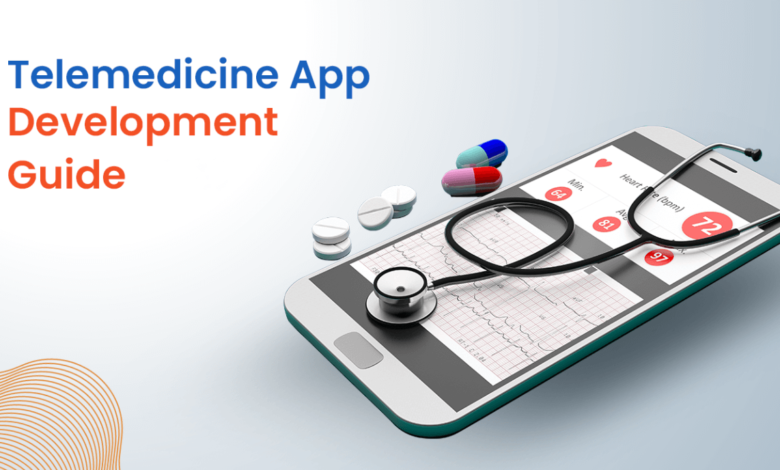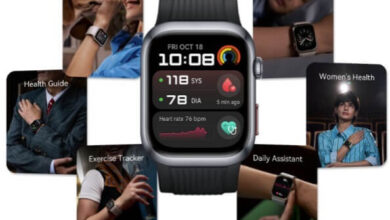Telemedicine App Maintenance and Evolution: Complete Guide

In today’s healthcare landscape, telemedicine apps have transformed how patients and providers interact, offering more convenient, efficient, and accessible healthcare solutions. Yet, like any tech-driven solution, maintaining and evolving these applications is critical to staying relevant, secure, and user-centric. This comprehensive guide provides insights into the essential aspects of maintaining and evolving a telemedicine app effectively, with a focus on growth strategies, security, scalability, and innovative features that keep you at the forefront of healthcare technology.
The Importance of Maintenance in Telemedicine App Development
Telemedicine app maintenance is not just about fixing bugs or updating the system; it’s a continuous process of improving the app’s functionality, performance, and user experience. With the high-stakes nature of healthcare, maintaining a telemedicine app ensures seamless interactions, secure patient data, and adherence to regulatory standards.
Regular maintenance ensures that your telemedicine app stays secure and operational in a fast-evolving landscape. For healthcare providers looking to hire iOS app developers, working with professionals skilled in telemedicine app development is key, as they understand the unique challenges and requirements in the healthcare domain.
Key Aspects of Telemedicine App Maintenance
- Bug Fixing and Issue Resolution
Bugs and technical issues can lead to severe disruptions in a telemedicine app’s operations. Regularly fixing bugs helps minimize downtime, optimizing app performance, and ensuring that users receive a smooth and reliable experience. - Performance Optimization
With high user expectations, ensuring that the app performs optimally is crucial. This includes fast load times, seamless video calling, and minimal crashes. Performance optimization encompasses regular testing, system tuning, and load balancing to manage peak traffic times without slowing down the app’s functionality. - Compliance and Security Updates
In telemedicine, compliance with healthcare regulations like HIPAA, GDPR, and HITECH is essential. Ensuring that your app aligns with these standards protects patient data and builds trust. As regulations evolve, you’ll need to implement updates to ensure that the app meets the latest compliance requirements. - User Feedback and Feature Enhancements
Listening to user feedback and making necessary adjustments is a crucial part of app maintenance. Incorporate features based on patient and provider needs, like enhanced scheduling options, AI-based diagnosis tools, or streamlined prescription services. These updates not only improve user satisfaction but also position your app as an industry leader in telemedicine app development. - System Updates and Compatibility Checks
Operating systems and third-party libraries frequently release updates. Failing to keep up can lead to compatibility issues or security vulnerabilities. Regularly update the app to remain compatible with the latest iOS and Android versions. For those considering hiring iOS app developers, having experts on board who can anticipate these changes and implement timely updates is invaluable.
The Evolution of Telemedicine Apps: Key Areas for Growth
Evolution is necessary for any app to stay relevant and competitive. For telemedicine apps, evolution involves not only technological upgrades but also adapting to changes in the healthcare industry. Here are critical areas to focus on for evolving your telemedicine app.
- Expanding Telehealth Services
Initially, telemedicine apps focused on consultations, but now the scope has expanded to encompass a broad range of services, from mental health support to chronic disease management. Enhancing your app’s functionality to offer a comprehensive suite of telehealth services can attract a wider user base and improve patient retention. - Integration with Wearable Devices
Wearable health technology, such as smartwatches and fitness trackers, provides real-time health metrics like heart rate, activity levels, and sleep patterns. By integrating with these devices, a telemedicine app can offer more personalized care and enable real-time monitoring for chronic conditions, leading to better health outcomes and enhanced patient engagement. - AI and Machine Learning Capabilities
AI-powered features such as symptom checkers, chatbots for customer support, and automated diagnosis can improve the app’s functionality and offer a more sophisticated user experience. Machine learning algorithms can also help personalize care by analyzing patient history and suggesting treatment plans, making the app an integral part of patients’ health management. - Enhanced Video and Audio Quality
High-quality video and audio are essential for telemedicine consultations, ensuring that doctors can accurately observe patients and that the communication is clear. Evolving the app to support HD video and sound quality, regardless of internet bandwidth, enhances the user experience and allows for more precise virtual consultations. - Data Analytics and Reporting
Incorporating analytics tools into the app can offer valuable insights into patient behavior, health outcomes, and operational efficiency. With data-driven insights, healthcare providers can make informed decisions, such as identifying common symptoms or trends in patient visits. This feature also benefits healthcare providers by allowing them to track the effectiveness of treatments and patient adherence to prescribed plans. - Cross-Platform Compatibility and Accessibility
A critical part of telemedicine app development is ensuring the app is accessible on multiple devices, including smartphones, tablets, and desktop computers. Making the app accessible to users with disabilities also improves user experience and broadens the app’s reach. Cross-platform compatibility ensures a consistent experience for users regardless of the device they use. - Enhanced Security Features
As cyber threats evolve, enhancing your app’s security features is essential to protect sensitive health information. This could include advanced encryption methods, multi-factor authentication, and regular security audits. If you decide to hire iOS app developers, choosing those with experience in healthcare app security can ensure that the app stays ahead of potential threats.
Key Steps in a Telemedicine App Maintenance and Evolution Strategy
- Regular Software Updates
Software updates are necessary to address bugs, improve performance, and incorporate new features. By scheduling periodic updates, you can prevent issues before they arise and ensure that the app operates efficiently. Collaborating with a telemedicine app development expert ensures that updates align with the latest industry standards. - Conducting Usability Testing
Regular usability testing helps identify pain points in the user experience, enabling you to implement improvements before issues affect a wider user base. This testing involves real-world scenarios and collects user feedback to gauge the app’s ease of use, functionality, and accessibility. - Monitoring and Logging User Activity
Continuous monitoring of the app’s performance and user activities can reveal trends in how the app is used, potential areas for improvement, and security concerns. Detailed logging can also assist in diagnosing and resolving technical issues promptly, ensuring minimal disruption to users. - Incorporating Scalable Architecture
As your app gains more users, scalability becomes crucial to maintain optimal performance. Using cloud-based solutions and microservices architecture can allow you to scale up or down according to demand. Scalable architecture also supports additional features and integrations as the app evolves. - Proactive Security Audits
Conducting proactive security audits ensures that your app is safe from vulnerabilities. Regularly review all security protocols, conduct penetration testing, and stay updated on the latest security threats. This is particularly vital in telemedicine, where breaches can lead to severe consequences for patients and healthcare providers alike. - Continuous Training and Support for Users
A critical part of app maintenance involves supporting both patients and providers in using the app. Providing online tutorials, FAQs, and customer support channels can help users maximize the app’s functionality. Continuous support builds trust and loyalty, ensuring users feel comfortable with the app’s evolving features.
Read also: 4 Global Expansion Strategies for a Growing Business
Benefits of Hiring iOS App Developers for Telemedicine App Maintenance
Telemedicine apps require specialized skills to maintain and evolve effectively. When you hire iOS app developers with experience in telemedicine app development, you gain access to a team skilled in handling healthcare-specific requirements and addressing unique challenges such as data privacy, compliance, and scalability.
Experienced developers can help in several ways:
- Regular Compliance Updates: Ensuring your app meets healthcare regulations.
- Timely Security Patches: Proactively preventing cyber threats.
- User-Centric Design: Enhancing user experience based on continuous feedback.
- Technical Expertise: Leveraging advanced technologies like AI, machine learning, and cloud solutions for app evolution.
Conclusion
Maintaining and evolving a telemedicine app is an ongoing process that demands attention to detail, regular updates, and strategic feature enhancements. A well-maintained telemedicine app can provide an unparalleled user experience, streamline healthcare delivery, and foster long-term engagement. As the telemedicine industry continues to grow, keeping up with the latest trends and incorporating innovative solutions will ensure that your app remains at the forefront of healthcare technology.
For providers looking to scale and improve their telemedicine offerings, considering expert telemedicine app development and opting to hire iOS app developers with experience in healthcare technology can make a significant impact on the success and sustainability of your telemedicine application. Whether it’s for compliance updates, security, or performance enhancements, partnering with the right development team ensures a seamless and future-proof telemedicine solution.




